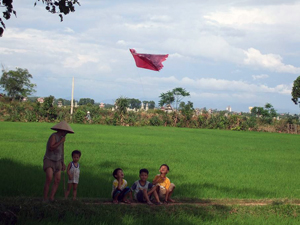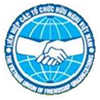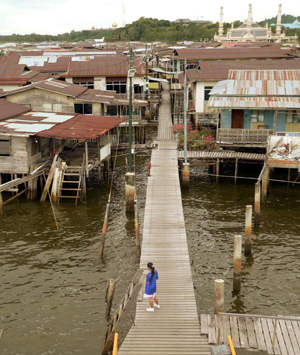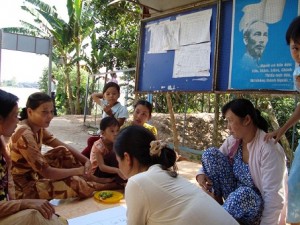What we do
Challenge to Change works in coastal and mountainous regions, in rural and urban areas, with government and community-based organisations, to assist poor communities which are vulnerable to the impacts of climate change, to adapt, and to build their resilience. Our current work in the provinces of Quang Binh, Da Nang, Binh Dinh and Can Tho includes:
- Enabling communities to recover from natural disasters, normally the impacts of extreme weather events
- Increasing awareness on climate change and disaster management
- Building capacity to assess disaster-risk and vulnerability, and to cope with disasters
- Supporting communities to prepare their own climate change and disaster management plans at village, commune and district levels, to minimise loss of life and livelihood
- Providing technical support for new livelihood models for local communities to improve their resilience to climate change
- Facilitating action research led by farmers to finds best ways to cope with drought, encroaching seas, salt intrusion, landslides, and environmental pollution
- Helping local communities to enhance their social networks and to form groups (such as farmer-interest groups) to be more resilient to climate change
- Supporting local authoritiesto integrate climate change and disaster management into their development plans, with participation of communities, including women, youth, and the poor
- Providing suitable infrastructure and facilities for communities and schools to better cope with disasters and related clean water and sanitation issues
- Building capacity for civil society organisations and local community-based organisations on project management especially for climate change-related projects
- Linking Vietnam partner organisations with international expertise on climate change
- Enabling Youth to raise their voice and participate in decisions regarding adaptation to, and mitigation of climate change, because Youth are the main stakeholders of the future
- Promoting knowledge, values and behaviour which minimise the environmental and carbon footprint of development activities
- Supporting teachers and students to increase their understanding of climate change, its nature, causes, and effects on their daily lives

High winds in Quang Tri

Planning to adapt in Trieu Giang Commune
Cities
Approximately 31% of Vietnamese population live in cities, and this is due to rise to 45% by 2025. The rapid growth of Vietnamese cities brings increasing urban poverty, and risks of disaster caused by extreme weather events.
As part of the Asian Cities Climate Change Resilience Network, funded by the Rockefeller Foundation, Challenge to Change works with poor communities, and with local government, and with Youth groups in three cities – Quy Nhon, Da Nang and Can Tho. These cities are vulnerable to typhoons, floods, tidal surges and riverbank erosion, and local livelihoods are partly dependent on nearby agricultural production, which is affected by increasing soil salinity as the sea encroaches from year to year. Past support has included participatory assessments of hazards, capacities and vulnerabilities across the cities, and support to experimental projects, for example a winch system to pull fishing boats ashore before typhoons hit, adapted models of construction of safer housing for vulnerable households, and clean water supply in a remote area of Can Tho using solar-powered electricity supply for the water pumps.
Currently CtC is working with local institutions and supporting city-level authorities to develop their participatory methods of planning for climate change and of managing disaster risks. CtC encourages a focus on the poorest and most vulnerable households and communities, and brings special attention to the needs of women, and encourages participation of Youth representatives.
Disaster Risk Reduction
Disaster risk reduction (DRR) is the practice of analysing and reducing the causes of disasters. It include reducing exposure to hazards, reducing vulnerability of people and property, improving management of land and the environment, and improving preparedness for adverse events. DRR is also part of ‘sustainable development’ – for development to be sustainable, it must include reducing disaster risk. Climate change is probably causing natural hazards such as floods and typhoons to increase in Vietnam. So staff of Challenge to Change specialise in supporting local government and communities to reduce disaster risk. In Quang Binh Province for example we support communities to carry out ‘hazard, capacity and vulnerability assessments’ (HCVA), and to prepare disaster risk management plans. We also provide material assistance including design and construction of storm and flood resistant housing, construction of community shelters, and provision of emergency equipment.
Youth
Challenge to Change gives priority to Youth, supporting them in all our project areas – Quang Binh, Can Tho, Da Nang, Quy Nhon, and Hanoi. Youth are the social group with the greatest concern for future sustainability. They are also possibly the most able and motivated to address climate change and sustainability issues – they have high ideals, they are trend-setters, and they are very communicative. But unfortunately they are kept apart from official decision-making processes. CtC has supported Youth Forums, where Youth initiatives were showcased and Youth action plans were developed. Since mid-2012 CtC has begun supporting Youth Groups in three cities to implement their own climate change resilience initiatives, and to engage and exchange lessons learned abouthow to build resilience to climate change, with local government. This enhances the rights of Youth to play a part in the decisions which affect their futures. Further details of the specific projects being implemented by these Youth Groups will be published soon, (watch this space!)
Awareness and Behaviour Change (ABC)
Sustainability can only be achieved through changes in human behaviour. Behaviour change can be achieved in many ways, including through raising awareness, and influencing human values, and by increases in responsible legislation to regulate human exploitation and consumption of natural resources. A useful typology of behaviour change techniques can be downloaded here.. Challenge to Change advocates for all types of good change in human behaviour, and supports a range of awareness-raising and behaviour change initiatives in Vietnam and also in the UK. In Vietnam, CtC is active in the Climate Change Working Group (CCWG) among International NGOs, and in the ABC Subgroup. In the UK, CtC is a member of the Stop Climate Chaos Coalition, a group of charities which advocates for change in government policy and for reductions in carbon emissions. CtC is developing a public education project to promote awareness and encourage behaviour change, especially in the area of Canterbury/Whitstable.
Currently our key partners include:
 |
Caritas Switzerland is an International NGO supporting poor communities in Vietnam since the mid-1990s. In 2010 Caritas is increasing its focus on Disaster Risk Reduction and Climate Change Adaptation, and is working closely with Challenge to Change in Quang Binh Province, supporting communities to recover from extreme weather events on the coast. | |
|
|
||
| Swiss Solidarity is a network of Swiss organisations providing international humanitarian and emergency assistance. In Vietnam, Swiss Solidarity supports Caritas Switzerland and Challenge to Change in rehabilitating infrastructure damaged by Typhoon Ketsana in Quang Binh Province, and reducing risk of further disasters. | ||
|
|
||
 |
The Institute for Social & Environmental Transition (ISET) is an international organisation with offices in the United States and Nepal, with academic and practical expertise in bridging climate science and adaptive responses to climate change. ISET is establishing its work in Vietnam, and works in partnership with Challenge to Change in Da Nang, Quy Nhon and Can Tho cities. | |
|
|
||
 |
The Rockefeller Foundation is a philanthropic institution seeking to address the underlying causes of human suffering. Rockefeller initiated the Asian Cities Climate Change Resilience Network in Vietnam, and is also working on climate change programmes in Africa in relation to agriculture, and the United States in relation to policy, and is supporting the CtC Youth Programme in Vietnam. | |
|
|
||
 |
The Worldwide Fund for Nature initiated Earth Hour several years ago. Challenge to Change is working in cooperation with WWF to carry out activities within the ‘Earth Hour 60+’ programme, in Hanoi, with the aim of ‘going further’ than simply turning off the lights for one hour. ‘Earth Hour 60+’ aims to generate broader initiatives towards global sustainability. | |
|
|
||
 |
The People’s Aid Coordination Committee (PACCOM) was established in 1989 under the Vietnam Union of Friendship Organizations at central level. PACCOM facilitates humanitarian and development aid activities of International NGOs working in Vietnam, and works in partnership with International NGOs to host a Resource Centre in Hanoi. | |
|
|
||
 |
CtC’s local government partners within Vietnam are the Provincial People’s Committees of Ha Giang, Da Nang, Binh Dinh, Quang Binh and Can Tho, and their technical departments such as the Departments of Natural Resources & Environment, and the Peoples Committees at lower levels (District and Ward/Commune). CtC works in full cooperation with local government. | |
|
|
||
 |
The Association for Empowerment of People with Disabilities is a Vietnamese NGO based in Quang Binh Province. It emerged from the International NGO, the Landmines Survivors Network. Challenge to Change works with AEPD and with Caritas in Quang Binh Province to support recovery of vulnerable communities from extreme weather events. | |




